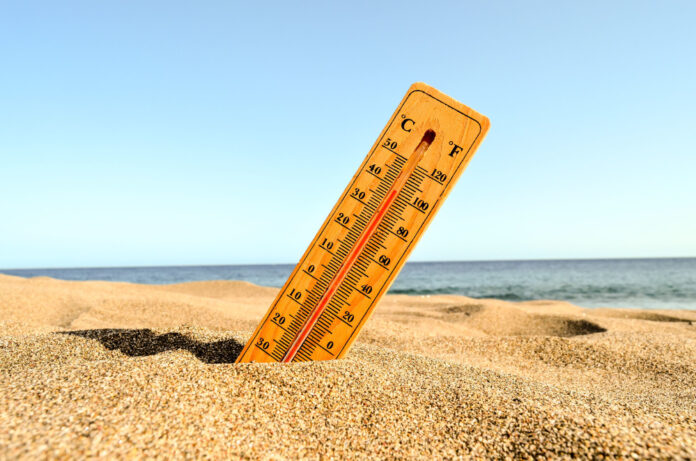Extreme temperatures in Greece, Spain, Italy, and Turkey have led to tragic incidents and health advisories, urging tourists to adapt to the intense holiday heat
Early summer has brought severe heatwave conditions to southern Europe, catching locals and tourists alike off guard. Greece, in particular, has seen temperatures soaring to unprecedented highs since early June, prompting concerns about public health and safety. The onset of wildfires in these hot conditions has exacerbated the situation, underscoring the impact of climate change on regional weather patterns.
The heatwave has led to temporary closures of schools and adjustments in daily routines as people seek shelter during the hottest parts of the day. This shift reflects a necessary adaptation to the extreme weather that has become increasingly expected with global warming.
Embed from Getty ImagesTragically, several tourists have succumbed to the heat, highlighting the risks associated with underestimating high temperatures in unfamiliar environments. Notable incidents include the deaths of British television presenter Dr. Michael Mosley on the Greek island of Symi, along with other fatalities of foreign nationals in Greece, including a German man on Crete, a Dutch tourist on Samos, and an American tourist near Corfu.
Meanwhile, in the United Kingdom, parts of Wales and England recently experienced their own heatwave conditions, albeit less severe than those in southern Europe. While uncomfortable for some, these temperatures did not approach the UK’s record high of 40.3°C set in July 2022. The contrast underscores the varying impacts of heatwaves across different regions.
Tourists travelling to destinations like Athens or the Greek Islands often face a sudden and intense heat that can overwhelm even the most seasoned travellers. Activities such as hiking and sightseeing become riskier endeavours in such extreme conditions. Local authorities, mindful of the strain on medical services, frequently close popular tourist sites like the Acropolis during peak heat periods.
In response to these challenges, experts advise practical measures to mitigate the effects of extreme heat. These include wearing sunscreen, sunglasses, and light, breathable clothing, and seeking shade whenever possible. Hydration is crucial, with recommendations to drink plenty of water and avoid excessive alcohol and caffeine consumption. Adjusting daily schedules to avoid midday heat peaks and using cooling methods like damp towels or foot baths can also help manage heat-related stress.
Accommodations should be kept cool by using techniques such as closing blinds during the day and opening windows during cooler evenings and mornings. Air conditioning, if available, should be set to moderate temperatures to enhance comfort without excessive energy consumption.
Analysis:
Political Perspective: The heatwave underscores broader discussions on climate change policy and adaptation strategies across Europe. Governments face increasing pressure to implement measures that mitigate heat-related risks and protect vulnerable populations, including tourists and locals alike.
Social Perspective: Socially, the heatwave prompts reflection on lifestyle adjustments and cultural norms in response to extreme weather events. Practices like the Mediterranean siesta and late dining, traditionally embraced in hot climates, offer practical examples of adapting to and embracing local weather patterns.
Economic Perspective: Economically, the tourism sector faces challenges in balancing visitor safety with continued business operations during heat waves. Mitigating risks through site closures and health advisories can impact tourism revenues while safeguarding public health remains a priority.
Health Perspective: From a health standpoint, understanding and managing heat-related illnesses become critical, especially for vulnerable groups such as the elderly and those with pre-existing conditions. The need for comprehensive public health strategies to educate and protect tourists and locals alike is evident.
Environmental Perspective: Environmental concerns include increased wildfire risks and air quality issues during heatwaves, highlighting the interconnectedness of weather extremes and ecological health. Monitoring and addressing these challenges are essential for sustainable tourism practices and environmental stewardship.
